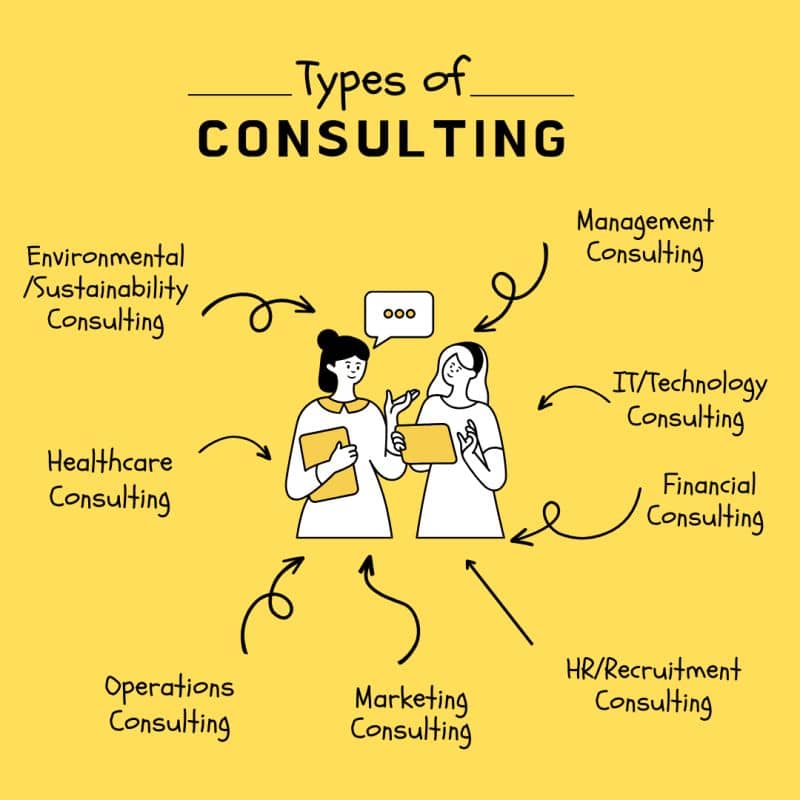Starting a consultancy can be an exciting and rewarding journey, but it also comes with its unique set of challenges. Whether you’re an expert in marketing, human resources, technology, or any other field, setting up your own consultancy requires more than just knowledge and skills; it involves strategic planning and execution. In this article, we’ll explore essential tips for aspiring consultants looking to build a successful consultancy, covering everything from understanding your niche to effectively marketing your services.
Understanding Your Niche
One of the first steps in building a successful consultancy is to clearly define your niche. This involves identifying your specific area of expertise and determining the problems you can solve for your clients. A well-defined niche not only sets you apart from competitors but also allows you to target your marketing efforts effectively.
For example, if you have a background in digital marketing, consider focusing on a specific industry, such as healthcare or e-commerce. Narrowing your focus helps you speak directly to potential clients, establishing you as an authority in that area.
Conducting Primary Market Research

Before diving into your consultancy, it’s essential to conduct primary market research to understand the demand for your services and the competitive landscape. This can include:
- Surveys and Interviews: Gather insights directly from your target audience. Identify their pain points and what solutions they are looking for skills and slots.
- Competitor Analysis: Study other consultants or firms that operate in your niche. Analyze their strengths, weaknesses, pricing, and service offerings.
This research will guide your business strategy and help you tailor your services to meet the needs of your clients.
Creating a Business Plan
Every successful venture starts with a solid business plan. Your business plan should outline your consultancy’s mission, services, target market, pricing strategy, and financial projections. Additionally, it should address how you plan to reach your clients and what resources you will need to get started. A well-thought-out business plan serves as a roadmap for your consultancy haley strategic and is crucial if you plan to seek funding or partnership opportunities.
Building Your Brand
Branding is crucial for any consultancy seeking to make an impact. Your brand encompasses your values, mission, and the image you portray to the outside world. An effective brand sets the tone for your engagements with clients and positions you as a trusted expert.
Developing a Unique Value Proposition
Start by crafting a unique value proposition that clearly communicates what sets you apart in the marketplace. This statement should outline the specific benefits clients will experience when working with you.
Creating Professional Marketing Materials
Invest time in designing professional marketing materials, including:
- A visually appealing logo
- Business cards
- A website showcasing your services, testimonials, and case studies
Networking and Relationship Building

In the consultancy business, strong relationships are key to your success. Impact Networking helps you connect with potential clients, partners, and other industry professionals who can refer business your way. Attend industry conferences, local networking events, and join relevant online forums or professional associations to expand your network.
Building genuine relationships often leads to word-of-mouth referrals, which are invaluable for consultants. Show sincere interest in the people you meet and find ways to provide value through sharing resources or offering insightful advice.
Marketing Your Consultancy
Once you have defined your niche, built your brand, and established a network, it’s time to focus on marketing your consultancy. A multi-channel marketing approach often yields the best results. Here are some strategies to consider:
Content Marketing
Creating valuable content that addresses your target audience’s pain points positions you as an expert in your field. Start a blog, produce podcasts, or create informative videos that showcase your insights and solutions. Share this content through your website and social media channels to attract and engage potential clients.
Social Media
Leverage platforms such as LinkedIn, Twitter, and Facebook to promote your consultancy. Engage with your audience by sharing valuable content, answering questions, and participating in industry discussions. Social media is a powerful tool for establishing your brand and reaching a wider audience.
Public Speaking Engagements
Consider offering to speak at industry events or webinars. Public speaking not only boosts your visibility but also positions you as a thought leader in your niche. Sharing your expertise with an audience can lead to new clients and networking opportunities.
Delivering Value to Clients
The core of any successful consultancy lies in delivering consistent value to clients. Focus on understanding their needs and challenges, then tailor your solutions accordingly. Client satisfaction is paramount; happy clients are more likely to refer you to others and become repeat customers.
Always be open to feedback and continuously improve your services based on insights you gain from clients. Demonstrating your commitment to their success can foster long-term relationships and solidify your reputation in the industry.
Setting Your Pricing Strategy
Determining how much to charge for your consultancy services can be challenging. Consider factors such as your level of expertise, the value you provide, and the market rates for similar services in your industry. Common pricing strategies include:
- Hourly Rates: Charge clients based on the amount of time spent on their projects.
- Project-Based Fees: Set a fixed fee for specific projects.
- Retainer Agreements: Charge clients a regular fee to secure ongoing support and expertise.
It’s important to be transparent about your pricing and the value clients receive at each price point. As you gain experience and build your reputation, don’t hesitate to adjust your rates to reflect your growing expertise.
Skills Development and Strategic Growth
As you build your consultancy, continue investing in your professional development Day. Attend workshops, obtain certifications, and participate in training relevant to your field. This commitment to learning not only enhances your skills but also signals to potential clients that you are dedicated to staying at the forefront of industry trends.
The Importance of Strategic Planning
Strategic planning is essential for long-term growth. Regularly evaluate your business goals and assess the effectiveness of your strategies. Tools like SWOT analysis (Strengths, Weaknesses, Opportunities, Threats) can help you understand where your consultancy stands in the market and where you need to focus your efforts.
Leveraging Remote Opportunities
In today’s digital age, many remote marketing jobs and digital marketing jobs are available, offering flexibility and a broader client base. Embracing a remote work model can help you tap into new markets and collaborate with clients from around the world. Build an online presence that showcases your consultancy’s expertise and allows potential clients to connect with you easily.
Conclusion
Building a successful consultancy requires a blend of strategic thinking, personal branding, and relationship building. By understanding your niche, conducting thorough market research, and continually developing your skills, you can position yourself as a trusted expert in your field. Remember to deliver value to your clients, develop a strong marketing strategy, and maintain flexibility to adapt to changing market conditions. With dedication and the right approach, your consultancy can thrive in a competitive environment.
